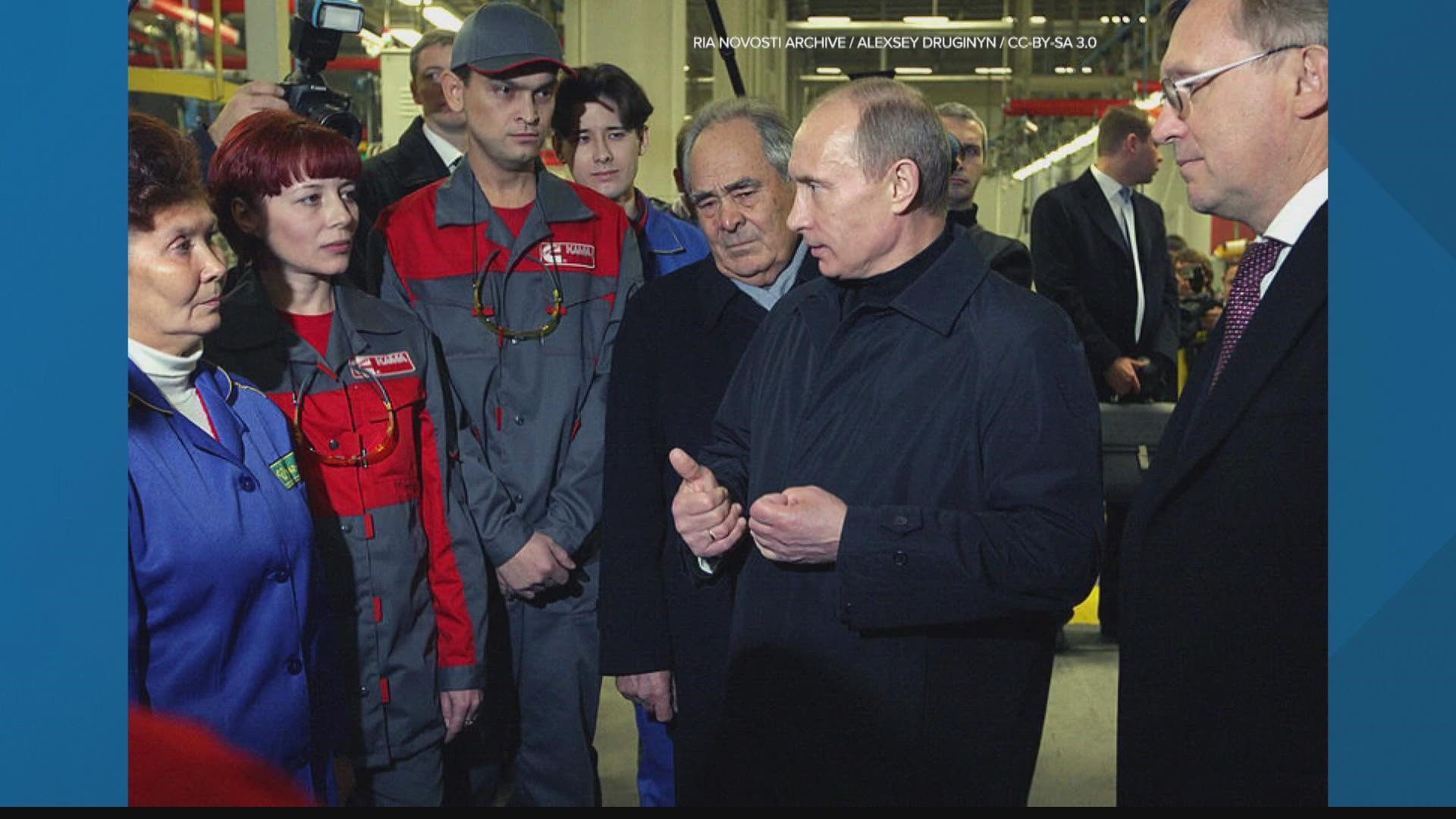INDIANAPOLIS — As Russia continues its war against Ukraine, one of Indiana’s largest companies says it is evaluating its business operations in Russia on a “day-to-day basis.”
Unlike many American companies that have temporarily ceased all operations in Russia, global engine manufacturer Cummins is still doing business in several Russian cities where it manufactures and distributes engines.
Company executives are trying to determine how to support war-torn Ukraine while also supporting their employees in Russia, according to company spokesman Jon Mills.
"Our main concern right now is for the people of Ukraine. We are horrified by what's going on,” he said. “But we have 700 employees in Russia. They are not participating in the war and we care about them, too. We don't want to turn our backs on those employees any more than we would turn our backs on employees here in Indiana."
Indiana-based Cummins opened an office in Moscow in 1985, and later announced a joint venture with KAMAZ, Russia's largest truck manufacturer. Russian President Vladimir Putin toured the Cummins KAMA manufacturing facility in Naberezhyne Chelny, Russia, in 2009, and with good reason.
KAMAZ is largely owned by a Russian state-owned defense company, created by Putin, that supplies parts for Russian military vehicles. Cummins told 13News its Russian-produced engines are used for civil, agricultural and non-defense uses, and that its contracts strictly prohibit Cummins engines from being used by the Russian military.
But earlier this month, an auto industry blog claimed Cummins engines can be found inside many Russian military vehicles, including the GAZ Tigr. The Tigr is Russia’s version of the popular Humvee military transport vehicle, which is currently transporting Russian troops in their attack against Ukraine.
Cummins insists that claim is “completely false and inaccurate,” again pointing to signed agreements with GAZ and KAMA that prohibit its engines from being used for Russian military purposes. (The company declined to provide 13News with a copy of those agreements.)
Despite having contracts that prevent Cummins engines from being used for defense, the company says it has temporarily decided to stop producing engines in Russia that are larger than 400 horsepower.
“We want to ensure there are not engines large enough to be used for military or defense purposes,” Mills told 13News. He said the company has also suspended production of marine engines, as well as parts for those engines.
All together, Mills said Cummins has now halted about 75% of its business in Russia in response to what he calls the country’s "despicable invasion" into Ukraine.
But concern over Cummins’ Russian workforce is responsible for executives deciding not to halt business operations completely.
“We are considering multiple options, and we are looking at the options on an ongoing daily basis,” Mills said.
According to business ethics scholars at Indiana University’s Kelly School of Business, businesses like Cummins face very difficult decisions.
“It’s a tightrope businesses have to walk when you go into a global environment, and during times of conflict and war, the pressure from governments and consumers on corporate leadership is so much greater,” said Eric Richards, an IU business law professor who specializes in international trade.
“Cummins is in a tough spot and there’s really not a good exact answer,” added Suneal Bedi, an IU assistant professor of business and ethics. “I think there’s a pressure on companies now to sort of isolate away from Russia so they themselves don’t get backfire. They have to consider if they keep doing business in a country that’s violating international norms, they are sending a message as a company that they really don’t care. And at the same time, it makes sense for a company to take care of its employees, who really have nothing to do with engagement in the war. You have to take care of your workers.”
Bedi said companies that temporarily shut down business operations in Russia while also continuing to pay their Russian employees may have figured out an ideal way to navigate a challenging business dilemma now unfolding in Russia.
“You can have your cake and eat it too,” he said. “You can send the message that what Russia is doing is inappropriate while at the same time taking care of your employees. You’ll hurt your bottom line and lose profits… but you’re saying to the international community and to your customers that we don’t support the war and we’re taking care of our people.”
Cummins employs approximately 10,000 workers in Indiana and 60,000 globally.

